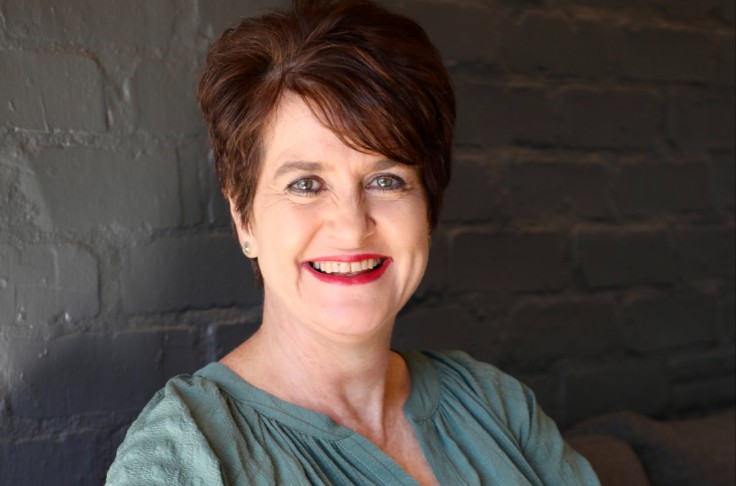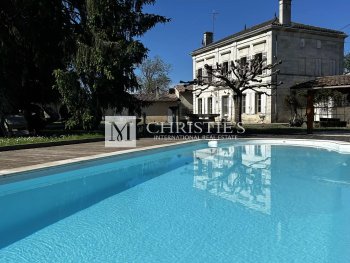OIV President Yvette van der Merwe
“We have challenges that are of a common interest and can be addressed from a common perspective”

I know it’s been mentioned that I’m the first woman from South Africa and from the African continent but I’m actually also the first person from Africa and South Africa. For me, this is very significant in terms of how far the OIV has come. Europe represents around 60% of world production so there is a strong focus on the European Union within the OIV from a world production perspective. South Africa is the 7th largest producer country but we only represent 4% of world production. That means that the large producer countries that are France, Italy and Spain have come to the point, one hundred years after the OIV was established, where they are comfortable supporting my candidacy for OIV president and electing me. John Barker is a New Zealander, I’m South African - we’re both from the Southern Hemisphere, so I do think it says something about the diversity and the inclusivity that we have seen developing within the OIV and how far the organisation has come.
How significant is it for the South African wine industry?
The OIV is a consensus-based organisation. So although South Africa might be tiny in terms of world production or exports, we have an equal voice when it comes to a standard or a resolution and we have always felt that. But I think it does signal a message to the outside world in terms of embracing diversity and inclusivity much more than just having European Union members within the OIV ranks. For South Africa, it is also significant in the sense that there is acknowledgment that we have a strong wine industry. We can pull our weight at the OIV and it is recognition of the contribution we have made to the organisation over many years. We have been a member of the OIV since 1963, which is quite a long time. It’s amazing for us as a country to be recognised on such a level and that a South African was approved for election at such a high level in management.
The start of your three-year term coincides with the launch of OIV’s new strategic plan. Can you detail some of the focus areas of the plan? Is it a continuation of the previous strategy?
It’s exciting to start my tenure with the start of the strategic plan, but now it has to be implemented! Sustainability is an important focus, but all three aspects of sustainability – the environmental, social and economic components. We’ve been dealing with environmental sustainability for probably the past twenty years, so it’s nothing new but now we’re going to have a very strong focus on the economic and social aspects. In several ways the new plan is a continuation – it’s not as if we’ve never been dealing with climate change or sustainability. But now, we need to have strong emphasis on the economic side of everything that we do. For example, if we work on methods of analysis, oenological practices or innovation, we have to keep in mind the cost of what we’re putting on the table. Then there’s the social or people aspect, which has become stronger over the past three or four years - our cultural heritage, the stories our industry has to tell. Those stories don’t have to be 2,000 years old, they can be ten or twenty years old. There is a richness in the cultural heritage of our members and that will be part of our focus in the new strategic plan. Another aspect is the fact that we have always represented the vine and wine industry, but there’s always been a strong focus on wine within the OIV. We have a commission on table grapes and raisins whose members have asked that we place emphasis on all products of the vine – table grapes, raisins, spirit beverages, grape juice, no-low alcohol – from all perspectives, whether that is viticultural practices, oenological practices, standards or resolutions. Another area is the simplification of international trade, what I call the ease of doing business.
What are your personal priorities as OIV president?
I’m an economist – I’m not a scientist or a winemaker or a viticulturist, so I bring that element to my role. I want to have a very strong focus on the economic side and the financial stability of the industry. I would like to be the voice of sanity or reason that says, I hear what you’re doing but the bigger picture is about addressing the objectives: are we looking at financial sustainability or at what the consumer wants? Are we addressing their needs? Sometimes we get so absorbed in our wine industry, it’s so rich and full of tradition that we perhaps need to take a step back and look and ask whether we are addressing the needs of all the consumers. So I want to see how we can take that narrative into the OIV with all its commissions and working groups.
In a press statement issued by South Africa Wine, your new role was described as ushering in a “new era of innovation and collaboration”. What role can OIV play in innovation?
Innovation for me would be in the whole chain of expertise of the OIV. I don’t only see innovation in terms of how we address the needs of the consumer, but also how we work with our vineyards and make wine. For the consumer, we need to look at no and low alcohol and we need to address that very urgently. I think we’re a little bit behind in terms of providing the consumer with, especially, no-alcohol products, but there are challenges with this. At the OIV, there is strength in numbers. We bring so many perspectives, from different regions, different fields across 50 member countries. It is a wonderful opportunity to tap into our strengths regarding the research that has been done within the individual countries. We can also learn from each other and really work as a collective. We do fiercely compete in the marketplace and retail outlets and it’s tempting to think that individual companies may be more innovative and have an advance compared with other players. But at the OIV we look at wine as a category - it’s not just one player having to cope with declining consumption and losing consumers to other, perhaps more sexy and exciting products. We have challenges that are of a common interest and can be addressed from a common perspective.
The need for greater collaboration was emphasised in Dijon. Is this something you will be advocating for at the OIV?
Yes. It is crucial for us to work with other organisations. Again, it’s about the richness that collaboration brings – sharing research, knowledge, expertise. Industry organisations, for example, can share other knowledge, expertise and perspectives with us, whilst we can provide them with evidence-based information. Obviously we acknowledge the alcohol content in wine, but we ask that whatever decision is made should be based on evidence and facts. This is where we have an important role to play in engaging with those organisations.
As an economist, how do you view the current global industry crisis?
My stance is that we need to determine why wine consumption is declining. We have a view but we need to ensure that we base our assumptions, once again, on facts. Are we sure that the category is declining because we are not providing consumers with innovative products and not talking to the younger generation about our product portfolio? We can then draw on the expertise of the member countries to see how we can address this. The word innovation is key. We’ll have to be innovative and, even if it’s a clichĂ©, think outside the box. We’ll have to acknowledge that perhaps we cannot keep on doing what we’re doing, or at least not everybody. What we’re doing might be right for a certain segment of the population, but perhaps another segment or generation would want something else. I am very confident that as an industry we will be able to give that to the consumer.
As it celebrates its 100th anniversary, OIV seems to be entering a new phase in its history. Would you agree? How do you see its future?
I fully agree. I’ve been involved with the OIV since 2000. During that time, our work has increased immensely. The level of involvement by countries and the experts they send to the OIV show that the pace has picked up. Particularly over the past five to ten years, you can see the changes at the OIV, and the pace continues to increase. There are constantly new topics that need to be addressed. In the future, I can see the pace continuing to quicken, we will have to move faster. You would think that after a hundred years, the work would be done, but actually it’s increasingly. There is so much more that we can and have to do.






